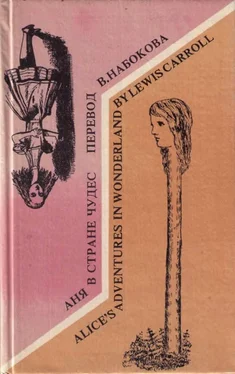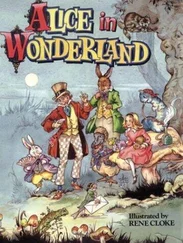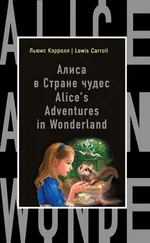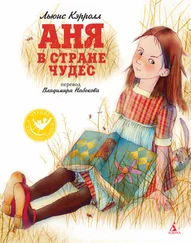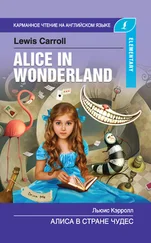'Ahem!’ said the Mouse with an important air, 'are you all ready? This is the driest thing I know. Silence all round, if you please! «William the Conqueror, whose cause was favoured by the pope, was soon submitted to by the English, who wanted leaders, and had been of late much accustomed to usurpation and conquest. Edwin and Morcar, the earls of Mercia and Northumbria-» [41] Edwin and Morcar — английский исследователь P.Л. Грин, много писавший о Кэрролле и подготовивший, в частности, к публикации его дневники, обнаружил, что приводимая цитата взята из учебника истории (Havil- land Chepmell. Short Course of History, 1862), по которому сестры Лидделл занимались в это время со своей гувернанткой мисс Прикетт. Грин полагал, что Кэрролл придал Мыши некоторые черты мисс Прикетт. Упоминаемые в отрывке граф Эдвин и граф Моркар, а также архиепископ Стиганд — видные деятели эпохи норманнского завоевания. Интересно, что Доджсоны находились в дальнем родстве с домами Эдвина и Моркара, впрочем, по мнению Грина, Кэрролл, скорее всего, об этом не знал.
'Ugh!’ said the Lory, with a shiver.
'I beg your pardon!’ said the Mouse, frowning, but very politely: 'Did you speak?’
'Not I!’ said the Lory hastily.
'I thought you did, said the Mouse. -I proceed. «Edwin and Morcar, the earls of Mercia and Northumbria, declared for him: and even Stigand, the patriotic archbishop of Canterbury, found it advisable-»
'Found what ?’ said the Duck.
'Found it , the Mouse replied rather crossly: 'of course you know what «it» means.
'I know what «it» means well enough, when I find a thing, said the Duck: 'it's generally a frog or a worm. The question is, what did the archbishop find?’
The Mouse did not notice this question, but hurriedly went on, — found it advisable to go with Edgar Atheling to meet William and offer him the crown. William's conduct at first was moderate. But the insolence of his Normans — 'How are you getting on now, my dear?’ it continued, turning to Alice as it spoke.
'As wet as ever, said Alice in a melancholy tone: 'it doesn't seem to dry me at all.
'In that case, said the Dodo solemnly, rising to its feet, 'I move that the meeting adjourn, for the immediate adoption of more energetic remedies-
'Speak English!’ said the Eaglet. 'I don't know the meaning of half those long words, and, what's more, I don't believe you do either!’ And the Eaglet bent down its head to hide a smile: some of the other birds tittered audibly.
'What I was going to say, said the Dodo in an offended tone, 'was, that the best thing to get us dry would be a Caucus-race. [42] Caucus-race — в этом словосочетании, употребляемом в данном эпизоде Кэрроллом, некоторые исследователи видят пародию на парламентскую борьбу. Термин «caucus» пришел в Англию из Соединенных Штатов и был переосмыслен англичанами: обычно его употребляли члены одной партии, говоря — в уничижительном смысле — о партии противников. Возможно, что Кэрролл употребил словосочетание «caucus-race» в переносном смысле, имея в виду, что члены комитетов различных парламентских партий часто бывают заняты бессмысленной беготней, которая ни к чему не ведет.
'What is a Caucus-race?’ said Alice; not that she wanted much to know, but the Dodo had paused as if it thought that somebody ought to speak, and no one else seemed inclined to say anything.
'Why, said the Dodo, 'the best way to explain it is to do it. (And, as you might like to try the thing yourself, some winter day, I will tell you how the Dodo managed it.)
First it marked out a race-course, in a sort of circle, ('the exact shape doesn't matter, it said,) and then all the party were placed along the course, here and there. There was no 'One, two, three, and away, but they began running when they liked, and left off when they liked, so that it was not easy to know when the race was over. However, when they had been running half an hour or so, and were quite dry again, the Dodo suddenly called out 'The race is over!’ and they all crowded round it, panting, and asking, 'But who has won?’
This question the Dodo could not answer without a great deal of thought, and it sat for a long time with one finger pressed upon its forehead (the position in which you usually see Shakespeare, in the pictures of him), while the rest waited in silence. At last the Dodo said, everybody has won, and all must have prizes.
'But who is to give the prizes?’ quite a chorus of voices asked.
'Why, she , of course, said the Dodo, pointing to Alice with one finger; and the whole party at once crowded round her, calling out in a confused way, 'Prizes! Prizes!’
Alice had no idea what to do, and in despair she put her hand in her pocket, and pulled out a box of comfits, (luckily the salt water had not got into it), and handed them round as prizes. There was exactly one a-piece all round.
'But she must have a prize herself, you know, said the Mouse.
'Of course, the Dodo replied very gravely. 'What else have you got in your pocket?’ he went on, turning to Alice.
'Only a thimble, said Alice sadly.
'Hand it over here, said the Dodo.
Then they all crowded round her once more, while the Dodo solemnly presented the thimble, saying 'We beg your acceptance of this elegant thimble'; and, when it had finished this short speech, they all cheered.

Alice thought the w hole thing very absurd, but they all looked so grave that she did not dare to laugh; and, as she could not think of anything to say, she simply bowed, and took the thimble, looking as solemn as she could.
The next thing was to eat the comfits: this caused some noise and confusion, as the large birds complained that they could not taste theirs, and the small ones choked and had to be patted on the back. However, it was over at last, and they sat down again in a ring, and begged the Mouse to tell them something more.
'You promised to tell me your history, you know, said Alice, 'and why it is you hate — C and D, she added in a whisper, half afraid that it would be offended again.
'Mine is a long and a sad tale!’ said the Mouse, turning to Alice, and sighing.
'It IS a long tail, certainly, said Alice, looking down with wonder at the Mouse's tail;’but why do you call it sad?’ [43] «Mine is a long and a sad tale!» said the Mouse… — «It is a long tail, certainly,» said Alice — в последующей сцене Кэрролл «реализует» невольную ошибку Алисы, вызванную омонимичностью слов «tale» и «tail»: отсюда стихотворение в виде мышиного хвоста.
And she kept on puzzling about it while the Mouse was speaking, so that her idea of the tale was something like this:
Читать дальше
Конец ознакомительного отрывка
Купить книгу
